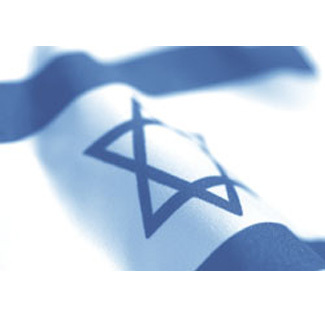Savlanut
One of the first things olim (new immigrants) learn upon arriving in
Many new immigrants assume these are all just things they don’t understand, and with time they will figure the system out. The only problem is most Israelis have no idea what any of these things mean either, but they do know how to work the system. Dealing with everything from the government to the post office and the banks is like trying to roll a huge boulder uphill while people on the sidelines shout directions at you in a language you can’t understand. Being truly Israeli is a matter of creating balance, a cultural feng shui. There must be a careful balance between two concepts, savlanut and being atzbani.
Savlanut is the concept of patience, taking a deep breath, and not getting frustrated when you realize the bank is only open for three hours on Tuesdays. Savlanut is the reason why we don’t have drive by shootings, people killing each other while waiting in line, and endless public brawling. I guess it also helps you have to check your gun when you visit most government offices and beer is sold in corner stores. I once asked at the Jerusalem DMV why you have to check in your gun before standing in line to wait you turn to argue with the unhelpful clerk. She just stared at me and asked “don’t you think it just makes sense?” It seems that utilizing savlanut is extremely important to get through the day and to deal with the million and one hassles that someone from
When all else fails, and it quite often does, the real Israeli turns to the second half of the equation. If savlanut is the force side of the Israeli persona, becoming atzbani is nothing less than the dark side. When one finds it’s no longer possible to maintain self control, keep calm and wait patiently, its time to turn atzbani. Like the Hulk getting angry, the screaming, shouting and hysterics come bursting to the surface. The glare, the shouting, the “try me and see what happens” attitude are all parts of getting really, really atzbani. Many Israelis evoke this tactic after waiting in line for a couple minutes, or may even get started while on the drive over. As a North American, you will still have plenty of patience when the entire line has already passed you, gone berserk, and gotten exactly what they wanted by virtue of screaming alone. You may be tempted to copy the Israelis and do some screaming on your own. Just remember, the important thing is not to apologize in between each epithet at the clerk’s mother and his choice of shirt. Apologizing and displaying savlanut in an atzbani situation confuses people. It makes them think you are a fryer (sucker) and are meant to take advantage of, if only to teach you a lesson. Being atzbani is not about creating enemies or making the other person feel bad, it’s just a way of getting what you want. As the maxim goes, he who screams loudest gets exactly what he wants, with a discount to top it off. Just because you went ballistic on someone and got what you wanted, it’s important to remember that in
The bottom line, try to stay calm, try to figure out how to work the system, wade through endless paper work and keep a smile on your face. When all else fails, blow your top and see if screaming accomplishes anything. Either way, its all part of the experience, welcome to

